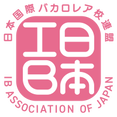Biology
The IB Biology course helps students to develop a broad understanding of the principles of Biology. There are 4 basic biological concepts that run through IB Biology: structure and function, universality versus diversity, equilibrium within systems and evolution. These concepts serve as themes that unify the various topics that students will study. These topics include cells, biochemistry, genetics, evolution, ecology, and human biology – as well as of statistical analysis of data.
Although the IB Biology course at standard level (SL) and higher level (HL) has been written as a series of discrete statements (for assessment purposes), these four basic biological concepts run throughout:
Although the IB Biology course at standard level (SL) and higher level (HL) has been written as a series of discrete statements (for assessment purposes), these four basic biological concepts run throughout:
- Structure and function - This relationship is probably one of the most important in a study of biology and operates at all levels of complexity. Students should appreciate that structures permit some functions while, at the same time, limiting others.
- Universality versus diversity - At the factual level, it soon becomes obvious to students that some molecules (for example, enzymes, amino acids, nucleic acids and ATP) are ubiquitous, and so are processes and structures. At another level, students can grasp the idea of a living world in which universality means that a diverse range of organisms (including ourselves) are connected and interdependent.
- Equilibrium within systems - Checks and balances exist both within living organisms and within ecosystems. The state of dynamic equilibrium is essential for the continuity of life.
- Evolution - The concept of evolution draws together the other themes. It can be regarded as change leading to diversity within constraints, and this leads to adaptations of structure and function. These four concepts serve as themes that unify the various topics that make up the three sections of the course: the core, the additional higher level material and the options.
Updated Sep'22


